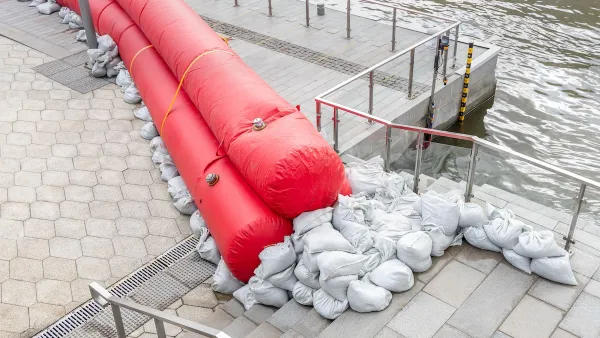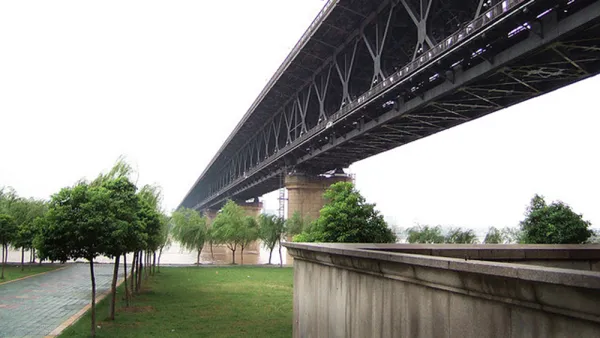Some Midwest cities' plans to upgrade decades-old sewer systems rely on outdated rainfall predictions as flood risks grow due to climate change and shifting weather patterns.

Experts warn that the wastewater system upgrades planned by some cities are 'already obsolete,' writes Diana Kruzman for Grist. "The designs are based on decades-old rainfall estimates that do not reflect current – let alone future – climate risk."
"As of 2004, more than 700 communities around the U.S. had combined sewer systems, where wastewater and stormwater flow through the same pipes." But the plans made by cities to modernize the systems won't hold up to future heavy rains. "In the decades since cities’ plans were first approved, storms in the Midwest have grown more frequent and intense. Total annual precipitation in the Great Lakes region has increased by 14 percent, according to research from scientists at the University of Michigan, and the amount of rainfall from the heaviest storms has grown by 35 percent."
The article details the city of Cleveland's Project Clean Lake, an initiative geared toward overhauling the city's water system that was launched in 1994 and continues to rely on 1990s data. "Despite these changes, [program manager for the Northeast Ohio Regional Sewer District Doug] Lopata said the sewer district isn’t planning to change the structure or design of Project Clean Lake, which aims to capture 98 percent of the water that would otherwise result in sewage overflows."
"Without significant federal aid, the costs of dealing with sewage-laced flooding are passed on to ratepayers, many of whom can’t afford to pay higher water bills in the first place. The price of water in cities like Cleveland and Chicago has more than doubled over the last decade, according to an investigation by APM Reports." Meanwhile, low-income communities face the biggest threats from outdated and unsafe infrastructure.
FULL STORY: Cities are investing billions in new sewage systems. They’re already obsolete.

Analysis: Cybertruck Fatality Rate Far Exceeds That of Ford Pinto
The Tesla Cybertruck was recalled seven times last year.

National Parks Layoffs Will Cause Communities to Lose Billions
Thousands of essential park workers were laid off this week, just before the busy spring break season.

Retro-silient?: America’s First “Eco-burb,” The Woodlands Turns 50
A master-planned community north of Houston offers lessons on green infrastructure and resilient design, but falls short of its founder’s lofty affordability and walkability goals.

Test News Post 1
This is a summary

Analysis: Cybertruck Fatality Rate Far Exceeds That of Ford Pinto
The Tesla Cybertruck was recalled seven times last year.

Test News Headline 46
Test for the image on the front page.
Urban Design for Planners 1: Software Tools
This six-course series explores essential urban design concepts using open source software and equips planners with the tools they need to participate fully in the urban design process.
Planning for Universal Design
Learn the tools for implementing Universal Design in planning regulations.
EMC Planning Group, Inc.
Planetizen
Planetizen
Mpact (formerly Rail~Volution)
Great Falls Development Authority, Inc.
HUDs Office of Policy Development and Research
NYU Wagner Graduate School of Public Service




























